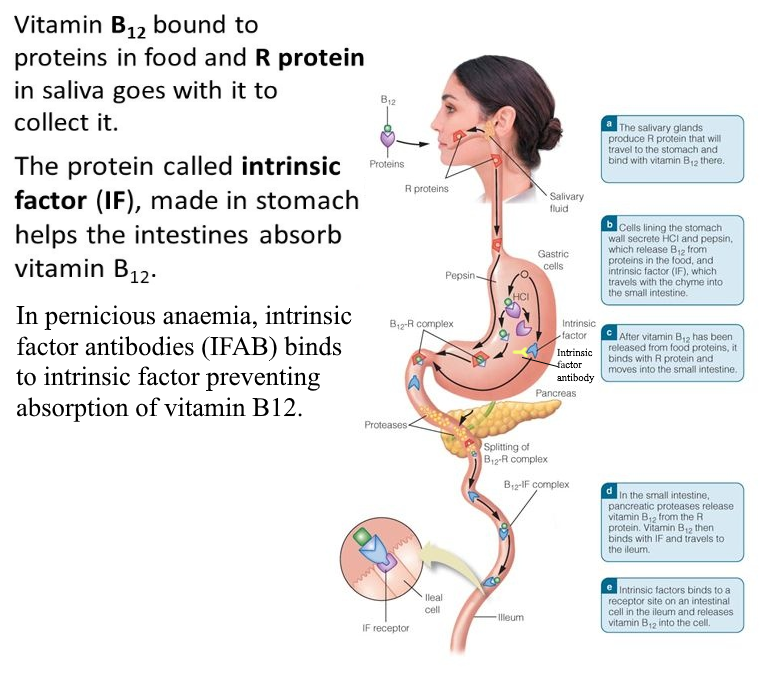Pernicious anaemia is an autoimmune condition, causes Vit B12 deficiency. It is a condition that prevents formation of the vitamin B12-intrinsic factor complex which causes decrease absorption of Vit B12. Intrinsic factor is produced in stomach to allow absorption of vitamin B12. It also affects the parietal cells in stomach (parietal cells produce gastric acid to aid digestion of food) through the production of antiparietal cells antibodies results in chronic failure of gastric acid production. Due to this condition, it is known to be associated with increased risk of stomach cancer.
Pernicious anaemia is often associated with other autoimmune disorders such as autoimmune thyroid disease, adrenal insufficiency, Type 1 diabetes mellitus, coeliac disease and vitiligo. It is essential for anyone who has been diagnosed with pernicious anaemia to be tested for other autoimmune disorder.
It is typically presented with anaemia (low red blood cells count). Signs and symptoms are pallor with yellow skin (jaundice), tiredness (happen early), gastrointestinal symptoms and variable neurological abnormalities (happen later).
Blood tests are required to diagnose this condition. Doctor will order blood tests such as full blood counts (FBE). If the FBE show macrocytic anaemia, the doctor will order more tests to check for vitamin B12 and folate levels. If vitamin B12 is found to be low, then further testing for intrinsic factor antibodies, antiparietal antibodies, methylmalonic acid and homocysteine.
Treatment is with regular Vit B12 injection administered weekly until the deficiency is corrected and then once every other month. However, high dose oral vitamin B12 therapy can also be effective, provided that the dose is sufficient, medication adherence is good, and a response is documented.
Individuals with pernicious anaemia should undergo gastroscopy soon after pernicious anaemia diagnosis and/or if they develop gastrointestinal symptoms.
